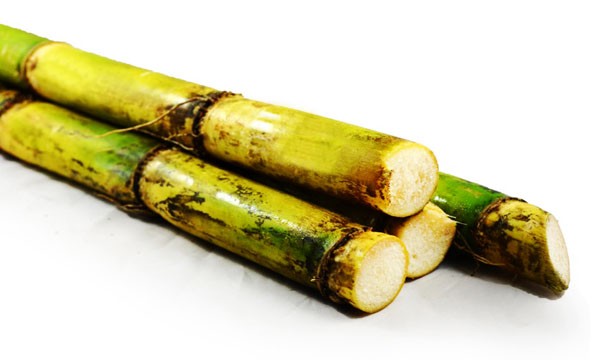The Role of Sugar and Cane in Creating Flavored Syrups and Sweeteners
The Role of Sugar and Cane in Creating Flavored Syrups and Sweeteners
Blog Article
Why Walking Cane Sugar Processing Chemicals Are Crucial for Modern Sugar Refining
The function of walking cane sugar processing chemicals in modern-day sugar refining can not be overstated, as they are indispensable to enhancing both the performance of removal and the overall top quality of the final product. Representatives such as phosphoric acid and specific flocculants are utilized to eliminate pollutants, causing sugar that not just meets consumer assumptions yet likewise sticks to market criteria. The ramifications of these chemicals prolong beyond quality, touching upon market characteristics and environmental considerations. sugar and cane. This raises crucial concerns regarding the sustainability of such methods and their influence on the future of sugar production.
Function of Processing Chemicals
The efficiency of cane sugar processing hinges substantially on the strategic application of processing chemicals. These chemicals play a pivotal duty in boosting the performance and high quality of sugar removal and refining. From the first stages of juice extraction to the last purification actions, processing chemicals facilitate different critical operations.
In the extraction phase, chemicals such as phosphoric acid and calcium hydroxide are used to maximize the clarification process, aiding to eliminate pollutants and suspended solids from the walking stick juice. This not just enhances the return yet also makes certain the quality of the end product. In addition, representatives like flocculants help in the fast settling of contaminations, consequently improving the overall process.
Turned on carbon and ion exchange resins serve to get rid of color and smell, ensuring that the refined sugar fulfills customer high quality criteria. Thus, the careful option and application of these chemicals are vital for accomplishing optimum outcomes in walking stick sugar handling.
Secret Sorts Of Chemicals
Cane sugar processing relies upon a variety of crucial chemicals that assist in each phase of production. These chemicals play necessary functions in clearing up, lightening, and detoxifying the sugar extracted from walking cane.
One primary classification of chemicals includes flocculants, such as polyacrylamide, which aid in the explanation procedure by advertising the gathering and settling of impurities. Additionally, calcium hydroxide is commonly utilized to neutralize acidity and assist in the removal of non-sugar parts.
Lightening agents, such as activated carbon and sulfur dioxide, are made use of to decolorize the syrup, resulting in a clearer final product. These chemicals help remove shade substances that might influence the sugar's look and marketability.
Furthermore, phosphoric acid serves as a pH regulatory authority throughout the processing stages, ensuring optimal conditions for the chemical tasks included in sugar extraction and filtration.
Various other vital representatives include edta (ethylenediaminetetraacetic acid), which chelates metal ions that can militarize unwanted responses, and sodium hydroxide, which aids in pH control throughout the refining process. Collectively, these chemicals improve effectiveness and ensure a premium cane sugar item.
Benefits for Sugar Quality
Typically ignored, the use of details processing chemicals dramatically enhances the total quality of walking cane sugar. These chemicals play an essential role in refining processes, making sure that the end product meets rigid industry standards for pureness and taste.

In addition, refining chemicals aid in attaining a regular granulation and appearance, which are important for consumer approval. By regulating the formation procedure, these chemicals make sure that the sugar crystals create evenly, causing a much more appealing item that dissolves well in various applications.
Moreover, using these chemicals can enhance the shelf life of cane sugar by reducing moisture absorption and microbial development. Generally, the calculated application of handling chemicals is important for supplying top notch walking cane sugar that meets customer expectations and market demands.
Ecological Influence Factors To Consider

Moreover, the energy-intensive nature of sugar refining, compounded by chemical usage, commonly leads to raised carbon exhausts. This contributes to climate change and raises issues relating to the sustainability of existing refining techniques. In addition, the sourcing of these chemicals might entail practices that threaten biodiversity, such as monoculture farming, which reduces the strength of farming ecosystems.

To minimize these effects, sugar refiners are significantly checking out sustainable choices and adopting Continued ideal methods that reduce chemical usage. Implementing strenuous ecological administration systems can assist guarantee that the refining procedure straightens with environmental requirements and promotes biodiversity. Inevitably, a balanced approach that prioritizes both sugar quality and ecological stewardship is necessary for the long-lasting viability of the sugar market.
Future Trends in Refining
As the sugar industry faces the environmental obstacles linked with standard refining approaches, cutting-edge methods are emerging to improve both effectiveness and sustainability. One substantial trend is the fostering of eco-friendly chemistry principles, which prioritize making use of non-toxic, biodegradable handling chemicals. This shift not just reduces environmental effect but additionally addresses consumer need for cleaner production approaches.
One more encouraging advancement is the execution of advanced purification innovations, such as membrane layer separation and adsorption processes. These strategies enhance the clearness and quality of the sugar while minimizing the volume of wastewater produced throughout refining. Additionally, the combination of electronic innovations, consisting of IoT and AI, is changing operational efficiency by allowing real-time surveillance and predictive maintenance, thus minimizing resource waste.
Additionally, using by-products from sugar refining, such as bagasse and molasses, is getting grip. These materials can be exchanged biofuels or value-added items, adding to a circular economy within the sector. Jointly, these fads signal a shift towards even more lasting practices that not only enhance operational effectiveness yet additionally align with global sustainability goals, making sure the future feasibility of sugar refining.
Conclusion
Cane sugar processing chemicals are necessary in modern-day sugar refining, significantly check my source enhancing the performance and quality of sugar extraction. The strategic use these chemicals not only improves the purity and flavor of the last item yet additionally guarantees consistent formation and appearance. As the sector increasingly prioritizes sustainability, the fostering of environmentally-friendly processing agents is likely to shape future fads in refining, eventually causing better products and extended life span for customers.

Eventually, a well balanced technique that focuses on both sugar quality and environmental stewardship is important for click this link the lasting practicality of the sugar sector.
Walking stick sugar handling chemicals are crucial in contemporary sugar refining, dramatically improving the performance and quality of sugar extraction.
Report this page